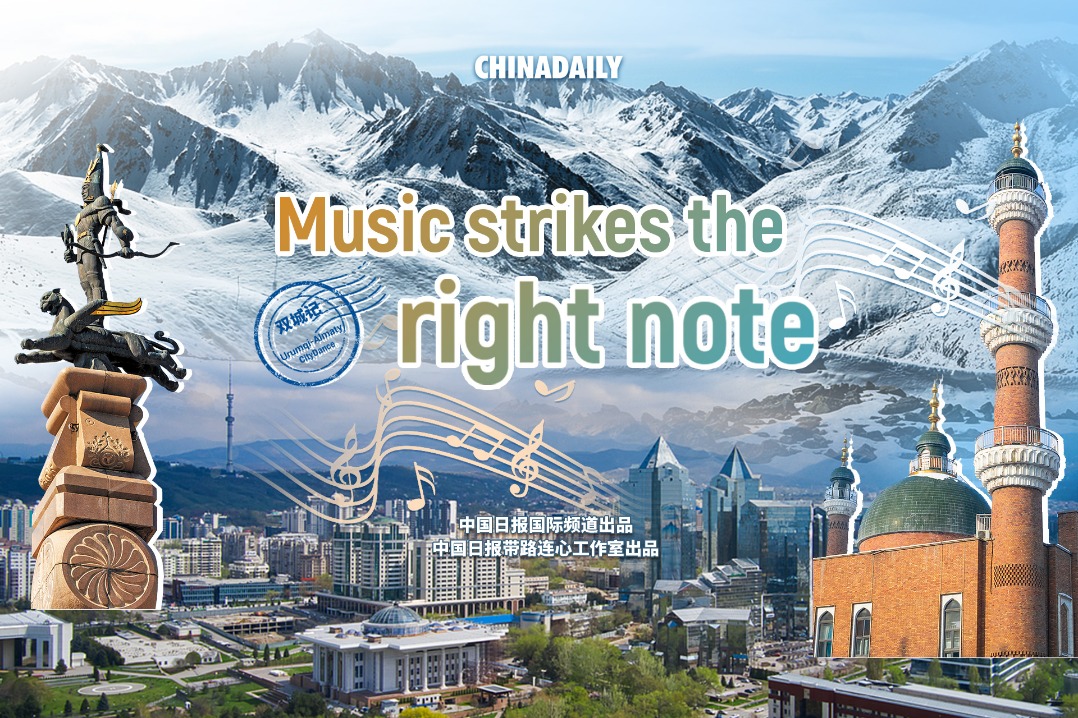HK can play bigger role in Bay Area's cultural development: Wong
chinadaily.com.cn | Updated: 2021-09-29 14:35
Editor's note: On the eve of the 72nd anniversary of the founding of the People's Republic of China, China Daily interviewed some Hong Kong residents from various sectors, with different backgrounds, about the close bond between the city and its motherland. This is the first piece in the series.

Gary Wong Chi-him, board member of Chinese Association of Hong Kong and Macao Studies and a nonofficial member of the Commission on Children of Hong Kong, on Tuesday shared his take on the significance of "one country, two systems" and his insights on the city's further development in arts and culture. Wong, who's in the capital city of Beijing right now, also shared with China Daily his plans for the upcoming National Day. Let's take a look at what he had to say.
How do you see the relations between Hong Kong and the country? What do you think of the significance of "one country, two systems" to Hong Kong?
"One country, two systems" is a groundbreaking invention which allows Hong Kong, as a special administrative region, to enjoy a high degree of autonomy and come directly under the Chinese central government.
On the basis of "one country", the HKSAR emphasizes the importance of patriots administrating Hong Kong and possesses executive, legislative and independent judicial power. Within the framework of "two systems", the HKSAR implements a system which is different from that of our nation by retaining its capitalist system and lifestyle. The common law tradition and Hong Kong dollar as the legal tender remain unchanged. The fundamental rights and freedoms of speech, press, association, assembly, procession and demonstration are well-protected.
On the whole, the relations between Hong Kong and the country are getting closer and stronger. Under the nation's 14th Five-Year Plan (2021-25) and facing the development of the Guangdong-Hong Kong-Macao Greater Bay Area, by fulfilling the country's needs, Hong Kong's unique advantages will be fully leveraged, and Hong Kong will continue to be more prosperous and stable.
Regarding the city's future, I am keeping an eye on Hong Kong's arts and culture development as it has been documented in the nation's 14th Five-Year Plan (2021-2025) as well as the Greater Bay Area plan. The country said it will support Hong Kong to develop into a hub for arts and cultural exchanges between China and the rest of the world, which would not only enrich Hong Kong residents' cultural and spiritual lives, but also strengthen our nation's soft power and global influence.

What are your expectations for Hong Kong's further development in arts and culture?
The HKSAR government should set clear missions, goals, strategies and action plans for advancing the development of Hong Kong's arts and culture. In five years time, I hope Hong Kong will be a recognized hub fostering multilayered Sino-foreign arts and cultural exchanges and able to "tell a good Chinese story" to a global audience.
The West Kowloon Cultural District will reinforce Hong Kong's role as an international arts and culture center and also serve as the heart of the GBA's cultural development. Our theaters, museums, galleries and curators will think beyond Hong Kong and forge deep and strategic partnerships with other arts and cultural institutions in the bay area to launch cross-boundary programs.
To me, arts must be on the ground to be in the air. Distinctive artistic themes should be connected with the respective local communities, making arts relevant to our residents' everyday lives. I am also concerned about how we provide our next generation of students with a comprehensive arts and culture education. As the world's second largest market for contemporary arts, Hong Kong should further upgrade our arts and culture value chain beyond a mere auction market and generate demand for high-end artwork storage, restoration, appraisal and valuation.
Lastly, I wish the development of culture, sports and tourism could be better integrated and ultimately strengthen Hong Kong's profile as the event capital of Asia and shape a more dynamic city brand for Hong Kong.
Could you share with us some impressive memories or your plans for National Day?
My first time celebrating National Day in Beijing was in 2019. I particularly enjoyed the banquet held at the Great Hall of the People, where Chinese people from Hong Kong, Macao, Taiwan and overseas all got together in high spirits. The bonding was beyond compare.
This year, I am going to wake up at 4 am and attend the flag-raising ceremony in the early morning at Tian'anmen Square on National Day.
Getting a step closer to the great rejuvenation of the Chinese nation and ending the pandemic are my best wishes to China, and I hope the HKSAR will be part of this important journey.
The interview was edited by Kathy Zhang.
























